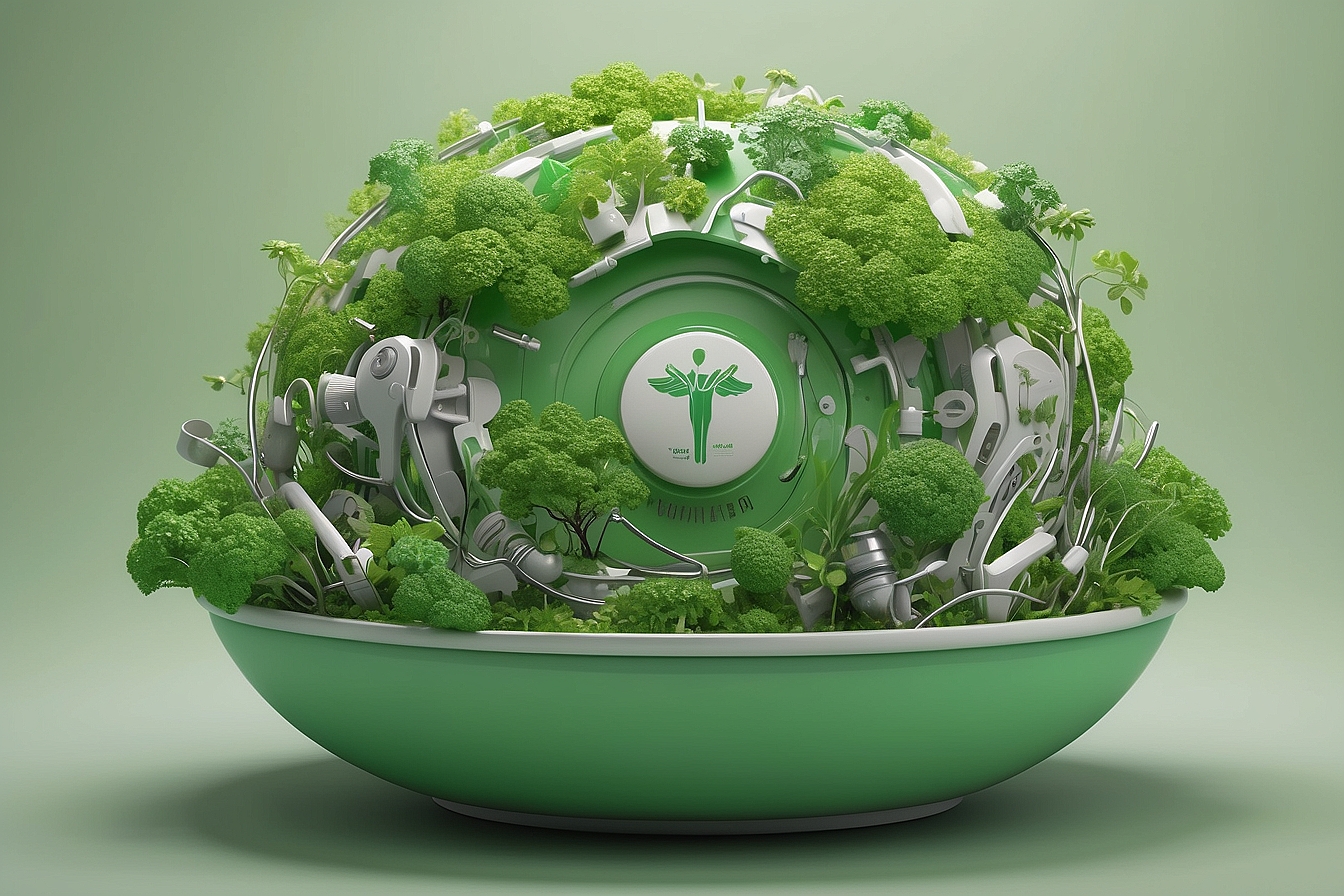Water is life – a simple truth that, regrettably, remains out of reach for far too many people across the world. Witnessing the struggle for clean water unfold is heart-wrenching; it’s a fundamental need that, when unmet, can escalate into dire health crises.
In the time it takes to boil a kettle, tragically a child somewhere succumbs to a disease borne by unsafe water. Our exploration of this subject has been revealing and thought-provoking.
We’re now poised to share insights gleaned from our journey—delving into why access to safe drinking water is crucial for global health and sketching out actionable steps towards equitable and enduring solutions.
So stay with us as we navigate these murky waters together—it’s high time for clarity and action.
Key Takeaways
- Over 2 billion people worldwide lack access to safely managed drinking water services. Unsafe water can lead to diseases like cholera and dysentery, with over 700 children under five dying daily due to diarrhoea linked to poor water and sanitation.
- Climate change is exacerbating the global water crisis by causing droughts and floods that affect the availability and quality of freshwater sources, impacting public health and increasing contamination risks.
- Investing in infrastructure for clean water supply and effective sanitation services is fundamental for public health. This includes upgrading treatment facilities, developing resilient systems against climate threats, and ensuring fair access through policies.
- Waterborne illnesses spread through contaminated water sources contribute significantly to global disease burdens. Ensuring access to safe drinking water is critical in preventing these diseases.
- Economic growth, gender equality, education, productivity improvements are all connected with access to clean water. Addressing economic disparities related to this resource can help create more equitable societies where everyone has a chance to succeed.
The Importance of Clean Water for Global Health
Clean water is essential for maintaining good health, yet millions of people around the world lack access to safe drinking water. Contaminated water can lead to a wide range of diseases and health issues, making it crucial to address this global public health threat.
Key facts and statistics
Water is essential to life, yet millions globally lack access to clean and safe drinking water. As environmental enthusiasts, we understand the profound impact clean water has on global health. Below is a summary of key facts and statistics highlighting this critical issue:
| Key Fact or Statistic | Description |
|---|---|
| 2 billion people | Lack access to safely managed drinking water services (WHO/UNICEF). |
| 3 billion | Struggle to obtain clean water at least once a month (UN). |
| Over 700 children under five | Die daily from diarrhoea linked to unsafe water and poor sanitation (UNICEF). |
| At least 2 billion | Use a drinking water source contaminated with faeces (WHO). |
| Hygiene-related diseases | Account for roughly 860,000 deaths of children under the age of five annually (UNICEF). |
| 1 in 4 healthcare facilities | Lacks basic water services, affecting over 2 billion people (WHO). |
| $260 billion | Lost globally each year due to lack of basic water and sanitation (World Bank). |
| By 2025 | Half of the world’s population will be living in water-stressed areas (WHO). |
We must recognise these numbers as more than statistics; they represent real people facing daily challenges. It’s our collective responsibility to support efforts that ensure access to clean water, as it is fundamentally intertwined with the health and prosperity of communities around the world.
Effects of contaminated water on human health
Given the hazardous nature of contaminated water, it significantly impacts human health. Impure water contributes to the spread of waterborne diseases such as cholera and dysentery, affecting millions each year.
The consumption of unsafe drinking water also leads to serious health issues, including gastrointestinal problems and even fatalities in severe cases. Moreover, exposure to contaminated water sources can result in long-term health complications due to toxic chemical pollutants that pose a threat to public health.
Clean drinking water is vital for maintaining good health and preventing life-threatening illnesses caused by impurities.
Contaminated water jeopardises population health by compromising hygiene standards and increasing the risk of disease outbreaks. This directly affects communities worldwide, particularly those without access to clean water sources or sanitation facilities.
Effects of unsafe drinking water
Continuing from the effects of contaminated water on human health, unsafe drinking water perpetuates the spread of serious diseases like cholera and typhoid. It imperils lives, especially in developing nations where access to clean water is limited.
Children are particularly vulnerable, with millions succumbing to preventable illnesses caused by unsanitary drinking sources each year.
Moreover, unsafe water directly impacts communities’ ability to thrive as it hampers economic development and perpetuates poverty cycles. The absence of clean water for agriculture and livestock restricts food production and can lead to malnutrition among individuals who rely on these resources for sustenance.
Benefits of clean water
Access to clean water is crucial for maintaining good health and preventing diseases. Clean water promotes overall well-being, reduces the spread of waterborne illnesses, and supports communities in thriving.
Ensuring universal coverage of safe water can lead to improved hygiene, lower healthcare costs, and enhanced quality of life. Sustainable development goals are furthered through hygienic sanitation and effective water management, safeguarding water quality for future generations.
Water purification technologies play a significant role in providing access to safe drinking water. They help in removing contaminants and impurities from the water supply, ensuring that communities have reliable access to clean, safe drinking water.
Challenges to Clean Water Access
Water and sanitation services are often inadequate, with economic and social implications that disproportionately affect the most vulnerable communities. Find out how we can address these challenges for a healthier, more sustainable future.
Water and sanitation services
Access to clean water and effective sanitation services is crucial for global health and environmental sustainability.
- Access to clean water ensures that communities have safe drinking water, reducing the risk of waterborne diseases.
- Sanitation services are essential for proper disposal of human waste, preventing contamination of water sources and reducing the spread of diseases.
- Adequate water and sanitation services contribute to improved personal hygiene, reducing the incidence of preventable illnesses.
Economic and social implications
Ensuring access to clean water and sanitation services has far-reaching economic and social implications. Without adequate water infrastructure, communities face increased healthcare costs due to waterborne diseases and poor health outcomes.
Additionally, lack of access to clean water hinders education and productivity, perpetuating a cycle of poverty in many regions. Addressing these issues not only improves public health but also stimulates economic growth by creating jobs in the water sector and increasing overall productivity.
Furthermore, investing in clean water projects can lead to improved gender equality as women and children are often disproportionately burdened with fetching water from distant sources, hindering their opportunities for education or employment.
Climate change
Climate change poses a significant threat to global water security. Rising temperatures and changing precipitation patterns affect the availability and quality of freshwater sources, leading to increased water scarcity and contamination.
This directly impacts public health, as it exacerbates the spread of waterborne diseases and hinders access to safe drinking water. Additionally, extreme weather events such as floods and droughts, intensified by climate change, further disrupt water supplies and sanitation services, amplifying the risks to human health.
Mitigating these climate threats is crucial in safeguarding clean water resources for present and future generations.
Health Impacts of Water Insecurity
Water insecurity can lead to the spread of waterborne diseases, contamination of water sources, and increased vulnerability to flooding and drought. The health impacts of unsafe water can have far-reaching consequences for communities around the world.
Spread of waterborne diseases
Clean water is crucial to prevent the spread of waterborne diseases. Global disease often originates from contaminated water sources, leading to widespread illness and even deaths. Water sanitation and purification are essential measures to combat this issue.
- Inadequate access to clean water contributes to the spread of diseases such as cholera, dysentery, and typhoid fever.
- Contamination of water sources with pathogens and pollutants poses significant health risks to communities, particularly in developing regions.
- Flooding due to inadequate infrastructure can lead to the contamination of water supplies, exacerbating the risk of waterborne illnesses.
- Droughts can also contribute to the proliferation of harmful bacteria in stagnant or insufficient water sources, further endangering public health.
- Ensuring affordable access to clean water is critical in preventing the transmission of waterborne diseases and safeguarding global health.
Contamination
Contamination of water sources can stem from various sources, such as industrial discharge, agricultural runoff, and improper waste disposal. These contaminants include heavy metals, chemicals, pesticides, and pathogens that pose serious health risks to communities relying on these water sources for drinking and sanitation purposes.
Ingesting contaminated water can lead to a range of illnesses, including gastrointestinal infections, skin problems, neurological disorders and even certain types of cancer. It is crucial to address contamination through proactive measures such as regular testing of water quality and implementing appropriate purification methods in order to safeguard the health of individuals who depend on these water sources.
These measures are necessary to mitigate the adverse effects of pollutants present in our natural water reservoirs. Governments need effective policies in place to regulate industrial discharge and enforce environmental standards that minimise contaminants leaching into vital bodies of fresh water.
Flooding and drought
Flooding and drought have serious consequences for water security, leading to contamination and scarcity. Extreme weather events like floods can overwhelm sanitation systems, causing pollutants to enter water supplies.
Droughts diminish freshwater sources, intensifying competition for clean water, which affects both human consumption and agricultural needs. These climate-related challenges highlight the urgency of sustainable water management and conservation efforts.
Mitigating flooding and drought requires proactive measures such as improving infrastructure resilience, implementing efficient irrigation technologies, and preserving natural watersheds.
Policy Solutions for Water Security
To address the challenges of water insecurity, policy solutions include mitigating and adapting to climate threats, rethinking water rights and governance, investing in infrastructure, safeguarding water quality, and ensuring affordable access to clean water.
These measures are crucial in promoting global health and providing access to safe drinking water for all.
Mitigating and adapting to climate threats
- Implement sustainable water management practices to conserve water resources and adapt to changing climate patterns.
- Develop resilient infrastructure to withstand extreme weather events and prevent contamination of water sources.
- Invest in research and innovation for new water purification technologies that can operate effectively under varying environmental conditions.
- Collaborate with local communities to raise awareness and implement efficient water conservation measures tailored to specific ecological challenges.
- Advocate for policies that prioritise environmental protection and sustainable water use to mitigate the impacts of climate change on global water security.
Rethinking water rights and governance
To ensure clean water for all, we need to reconsider our approach to water rights and governance. By empowering local communities and indigenous groups in decision-making processes, we can create more sustainable and equitable solutions.
This requires holding governments and corporations accountable for their environmental impact, supporting legislation that ensures fair access to clean water, and prioritising the preservation of natural water sources.
Through collaborative efforts and inclusive policies, we can establish a framework that respects the rights of all people to access safe drinking water while safeguarding our planet’s precious resources.
Investing in infrastructure
Investing in infrastructure is crucial for ensuring access to clean water. Upgrading and maintaining water treatment facilities can enhance the quality of drinking water, reducing the risk of contamination and waterborne diseases.
Building resilient infrastructure, such as dams and reservoirs, can also help communities cope with the impacts of climate change by mitigating flooding and securing water sources during droughts.
Sustainable investment in infrastructure also involves incorporating modern technology and innovative solutions to monitor and manage water supplies effectively. By doing so, we can ensure that clean water remains affordable and accessible for all, safeguarding public health while supporting environmental conservation efforts worldwide.
Safeguarding water quality
To safeguard water quality, we employ rigorous monitoring and testing protocols to detect any signs of contamination. Regular maintenance and upgrades to water treatment facilities are also essential.
Additionally, implementing sustainable agricultural practices and responsible waste management helps prevent pollutants from entering our water sources.
Ensuring the purity of our water supply demands collective effort; therefore, community involvement in conservation initiatives is imperative. We encourage public participation in clean-up campaigns, educational workshops on water stewardship, and advocacy for policies that protect our freshwater resources.
Ensuring affordable access to clean water
Transitioning from safeguarding water quality, we move on to ensuring affordable access to clean water. Making sure that everyone has access to clean and safe drinking water is essential for global health.
This involves implementing policies and strategies to reduce the economic burden of obtaining clean water, especially for vulnerable communities in developing countries. Investment in infrastructure, such as improving existing water supply systems and building new ones, plays a vital role in making clean water more accessible and cost-effective.
Additionally, promoting community-based initiatives for rainwater harvesting or groundwater recharge can also contribute to affordable access to clean water. Furthermore, advocating for fair pricing mechanisms and subsidies enables marginalised populations to afford necessary investments in sanitation facilities at home or within their community.
Conclusion and Call to Action.
Ensuring access to clean water is vital for global health and wellbeing. Investment in infrastructure, safeguarding water quality, and rethinking governance are all crucial steps. We must take action now to secure a healthy and sustainable future for all.
Join us in advocating for clean water as a fundamental human right. It’s time to make a difference!
FAQs
1. How does clean water relate to global health?
Clean water is essential for good health around the world because it helps prevent diseases and keeps people healthy.
2. What happens when communities don’t have access to clean water?
When communities lack clean water, they face higher risks of illness and diseases, which can have serious implications for their overall health.
3. Can improving access to clean water change global health outcomes?
Yes, improving access to clean water can lead to better health, fewer illnesses, and stronger communities across the globe.
4. What actions are critical in ensuring everyone has clean water for their health?
To ensure everyone has clean water, we must build proper sanitation facilities, treat wastewater effectively and protect natural sources from pollution.





